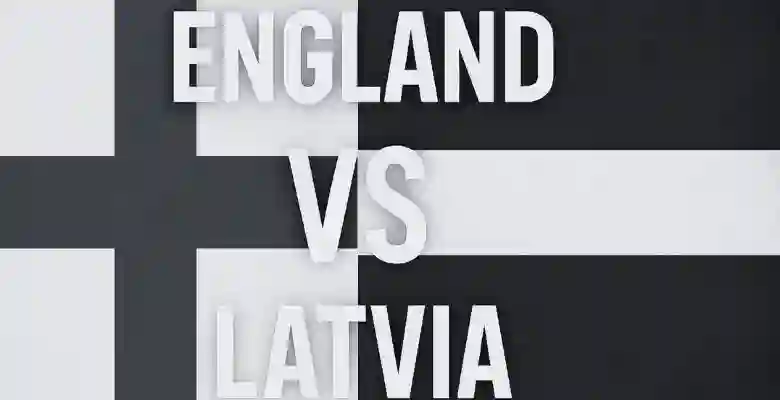
England vs Latvia
When we talk about England vs Latvia on the surface it may sound like a routine international fixture. But beneath the cold Baltic air of Riga and the crisp lines of the pitch lies a story about ambition, identity, preparation and momentum. In this essay I invite you to journey through that encounter, unpacking what it meant for both sides, and why that match holds lessons beyond the 90 minutes.
Setting the Scene – Why England vs Latvia Mattered
Bigger than Just One Match
The keyword England vs Latvia anchors us in one specific matchup, but the stakes were far higher than the fixture itself. For the England national football team, this was not just another qualifier: it was a declaration of intent, as they sought to book their spot in the 2026 FIFA World Cup and restore belief. For the Latvia national football team, it was a chance to upset that narrative, to assert that even the minnows can matter.
The Context and the Build-Up
In the qualification group for the 2026 World Cup, England found themselves in Group K alongside Albania, Serbia, Andorra and Latvia.Their earlier meeting had seen England beat Latvia 3-0 on 24 March 2025 at Wembley. Thus the “England vs Latvia” tag already carried a veneer of dominance. When they met again in October 2025, England had the chance to seal qualification. The match thus became symbolic: a test of mental strength, not just skill.
The Match Unfolds – England vs Latvia in Action
Tactical Notes on England
When England walked out in Riga, their game suggested a model of controlled aggression. They combined pressing intensity, quick transitions and an ability to exploit the weaker side of a defence. In that fixture, England thrashed Latvia 5-0, showing cohesion and ruthlessness. The keyword England vs Latvia here reflects not just the result, but the way it was achieved.
Latvia’s Challenge
Latvia, ranked 137th in the world at the time, faced an uphill battle. The story here is not merely of defeat, but of what we learn when an underdog faces a giant. Latvia had moments of resistance, but England’s organisation, depth and belief rendered those flickers moot. The encounter underlines that in football, as in life, the powerful often win not just by skill, but by structure and mindset.
Why “England vs Latvia” Echoes Beyond the Scoreline
When the phrase England vs Latvia is mentioned again, it triggers a series of associations: a major nation vs a smaller one, qualification pressure, dominance, but also inevitability. The narrative goes deeper: how a team on the rise (England) consolidates its position, and how one less likely to dominate (Latvia) is part of football’s mosaic. In analysing this match-up, we glimpse the architecture of modern football.
Insights and Underlying Lessons
Momentum Matters
One of the subtler points in the saga of England vs Latvia is how momentum builds. England didn’t just turn up—they affirmed. After the earlier 3-0 win in March 2025, they were confident going into the October fixture. That growing confidence translated into sharper passing, more incisive movement, fewer errors. Momentum, once generated, is self-reinforcing.
Underdog’s Role Still Has Value
Latvia may have been overpowered, but their role in the encounter should not be diminished. They force the dominant side to maintain standards, and they expose potential weaknesses. For England, Latvia acted as a mirror: could England avoid complacency? In the frame of England vs Latvia, the lesson is that the smaller side often holds the bigger side accountable.
The Psychological Edge
Qualifying campaigns are as much mental as they are physical. Entering the match, England had the psychological edge. They knew what to expect; they knew the task. Latvia had nothing to lose, which can be freeing—but often such freedom doesn’t equal structure. The contrast plays out in England vs Latvia: preparedness vs reactive effort.
The Broader Narrative – What This Means for England & Latvia
England’s Reinforcing of Status
By securing qualification and sending a message of dominance, England reaffirmed their status as a heavyweight. The phrase England vs Latvia becomes shorthand for “this team is prepared, focused, capable of imposing itself”. The result won’t stand alone; it’s part of a larger arc of national ambition.
Latvia’s Springboard to Growth
For Latvia, this kind of match offers reference points—what is elite? What is required? The phrase England vs Latvia also signals the gap, but gaps are not permanent. They can motivate. It gives the squad something tangible: “We played England. We felt the difference. Now we know what to work on.”
FAQs
Q1: What is the head-to-head record in “England vs Latvia”?
A1: Prior to the October 2025 match, England and Latvia had met once in senior men’s competition; England won 3-0 in March 2025.
Q2: When did England beat Latvia 5-0?
A2: On 14 October 2025, England defeated Latvia 5-0, sealing qualification for the 2026 World Cup.
Q3: Why was the match “England vs Latvia” so one-sided?
A3: England had superior talent, organisation, momentum and tactical clarity; Latvia were out-matched in almost all phases of play. The encounter illustrated a mismatch in resources and experience.
Q4: Does “England vs Latvia” have relevance beyond one match?
A4: Yes. The fixture becomes emblematic of broader themes: dominance of established powers, the challenge for smaller nations, and the importance of mindset and structure.
Q5: What can other teams learn from the “England vs Latvia” story?
A5: They can observe how consistency, preparation and taking opportunities matter. Also how even in ostensibly easy matches, the challenge is to maintain standards; and for underdogs, that every exposure to top-level opposition is a stepping stone.
Conclusion – Key Takeaways & Your Next Step
In the tapestry of international football, the meeting labelled England vs Latvia may read like a foregone conclusion. But when viewed through the lens of story, psychology and strategy, it becomes far richer. We see how England asserted themselves, how Latvia confronted the gulf, and how the interaction reveals much about football’s hierarchical realities.



